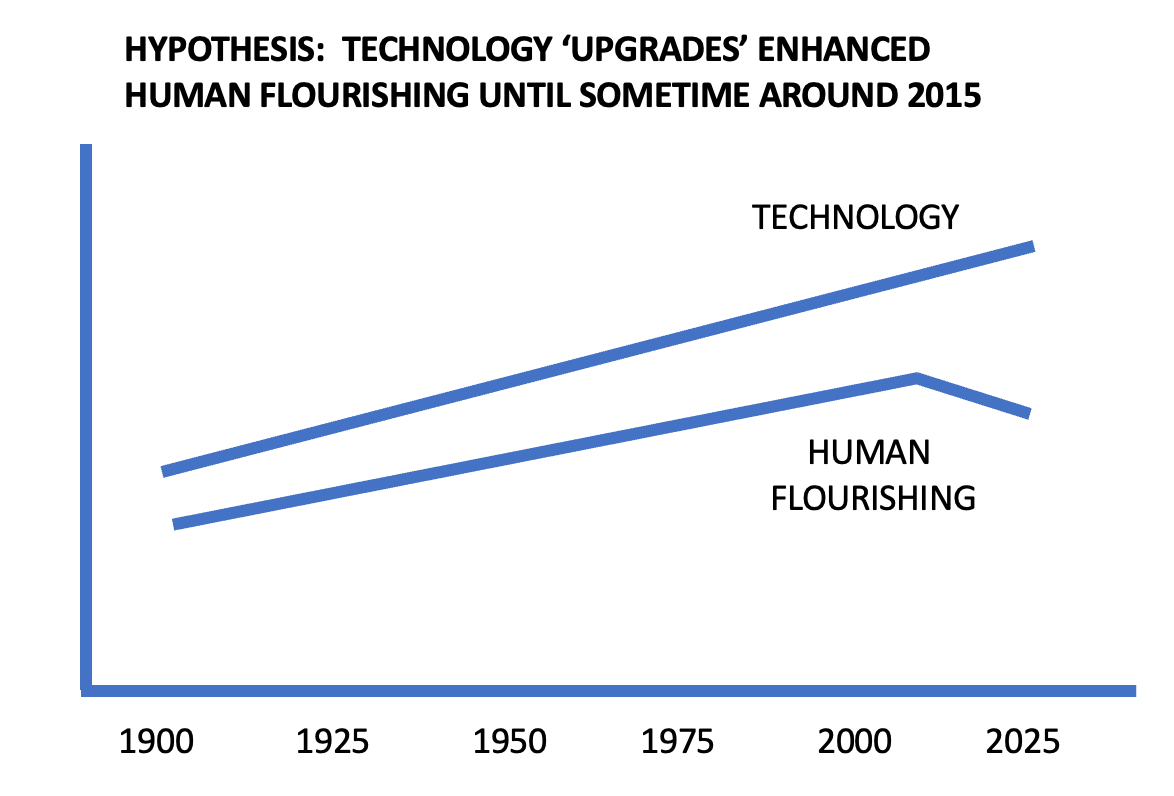Ted Gioia has just published an interesting polemic: I Ask Seven Heretical Questions About Progress. I'll leave you to read his seven heretical questions for yourself. But I'm quoting in full the final section of his most interesting post, with which I am deeply sympathetic. I am afraid that much current public discourse about progress is being driven by people whose minds are stuck in the 19th century world of the industrial revolution. The coupling of that mindset with current technology, particularly artificial intelligence, is a recipe of human disaster.
* * * * *
But let me move on to my radical hypotheses. (I’m running out of space, so these are much shorter.)
But each of these is a huge issue—and my views get more heterodox as you work your way down the list.
So I will need to write about this more in the future.
Progress should be about improving the quality of life and human flourishing. We make a grave error when we assume this is the same as new tech and economic cost-squeezing.
There was a period when new tech improved the quality of life, but that time has now ended. In the last decade, we’ve seen new tech harming the people who use it the most—hence most so-called innovations are now anti-progress by any honest definition.
There was a time when lowering costs improved quality of life—raising millions of people out of poverty all over the world. But in the last decade, cost-squeezing has led to very different results, and is increasingly linked to a collapse in the quality of products and services. Some people get richer from these cost efficiencies, and a larger group move into more intensely consumerist lifestyles—but none of these results (crappy products, super-rich elites, mass consumerist lifestyles, etc.) deserve to be called progress.
The discourse on progress is controlled by technocrats, politicians and economists. But in the current moment, they are the wrong people to decide which metrics drive quality of life and human flourishing.
Real wisdom on human flourishing is now more likely to come from the humanities, philosophy, and the spiritual realms than technocrats and politicians. By destroying these disciplines, we actually reduce our chances at genuine advancement.
Things like music, books, art, family, friends, the inner life, etc. will increasingly play a larger role in quality of life (and hence progress) than gadgets and devices.
Over the next decade, the epicenter for meaningful progress will be the private lives of individuals and small communities. It will be driven by their wisdom, their core values, and the courage of their convictions—none of which will be supplied via virtual reality headsets or apps on their smartphones.
I still have more to say on this. But that’s plenty to chew on for the time being.

Amen!
ReplyDelete